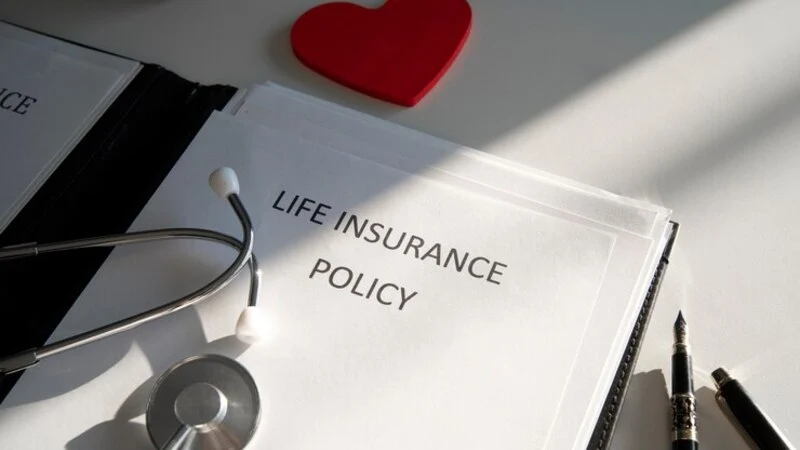Understanding insurance is crucial for any Business Owner. Insurance can protect your business from unexpected events, providing financial security and peace of mind. However, the world of insurance is filled with jargon and technical terms that can be confusing. This glossary aims to clarify common insurance terms and definitions that every business owner should know.
Understanding Insurance Basics
What is Insurance?
Insurance is a contract, represented by a policy, in which an individual or entity receives financial protection or reimbursement against losses from an insurance company. The company pools clients’ risks to make payments more affordable for the insured.
Premium
The premium is the amount of money a business pays for an insurance policy. Premiums are usually paid monthly, quarterly, or annually. The cost of premiums is determined by various factors, including the type of insurance, the coverage limits, and the risk profile of the business.
Deductible
A deductible is the amount a policyholder must pay out of pocket before the insurance company pays a claim. For example, if your policy has a $1,000 deductible and you have a claim for $5,000, you will need to pay $1,000, and the insurance company will cover the remaining $4,000.
Types of Business Insurance
General Liability Insurance
General liability insurance protects your business from claims involving bodily injuries and property damage resulting from your products, services, or operations. It can also cover legal fees and settlements if your business is sued.
Property Insurance
Property insurance covers damage to your business property, such as buildings and equipment, due to events like fire, theft, or natural disasters. This type of insurance helps ensure that your business can recover and continue operating after an incident.
Workers’ Compensation Insurance
Workers’ compensation insurance provides benefits to employees who suffer work-related injuries or illnesses. It covers medical expenses, lost wages, and rehabilitation costs. In most states, workers’ compensation is mandatory for businesses with employees.
Professional Liability Insurance
Also known as errors and omissions (E&O) insurance, professional liability insurance protects your business against claims of negligence, mistakes, or failure to perform. This type of insurance is essential for service-based businesses, such as consultants, lawyers, and accountants.
Key Insurance Terms
Policyholder
The policyholder is the person or entity that owns the insurance policy. In the context of business insurance, the policyholder is typically the Business Owner or the business entity itself.
Beneficiary
A beneficiary is a person or entity designated to receive the proceeds from an insurance policy. In life insurance, for example, the beneficiary is the individual who will receive the death benefit.
Coverage Limit
The coverage limit is the maximum amount an insurance company will pay for a covered loss. There are typically different limits for different types of coverage within a policy. For instance, a general liability policy might have separate limits for bodily injury and property damage.
Exclusion
Exclusions are specific conditions or circumstances that are not covered by an insurance policy. It’s important to read the policy carefully to understand what is and isn’t covered. Common exclusions might include certain natural disasters or acts of terrorism.
Endorsement
An endorsement is an amendment to an existing insurance policy that changes the terms or coverage. Endorsements can add, remove, or modify coverage. For example, you might add an endorsement to your property insurance policy to cover a newly acquired piece of equipment.
Claims Process
Filing a Claim
Filing a claim is the process of requesting payment from your insurance company for a covered loss. This typically involves notifying the insurer, providing documentation of the loss, and cooperating with any investigations.
Adjuster
An adjuster is a professional who investigates insurance claims to determine the extent of the insurer’s liability. Adjusters evaluate the damage, review documentation, and help decide the appropriate amount of compensation.
Settlement
An insurance company pays a policyholder a settlement for a covered loss. The adjuster determines the settlement amount after completing their investigation and approving the claim.
Specialized Business Insurance
Business Interruption Insurance
Business Owner interruption insurance covers the loss of income that a business suffers after a disaster. It helps pay for ongoing expenses and lost profits while the business is recovering. This type of insurance is crucial for businesses that rely on physical locations or have significant ongoing expenses.
Cyber Liability Insurance
Cyber liability insurance protects businesses against losses related to data breaches and cyberattacks. It covers costs such as notification of affected individuals, credit monitoring, legal fees, and fines. Given the increasing prevalence of cyber threats, this insurance is becoming more essential for businesses of all sizes.
Commercial Auto Insurance
Commercial auto insurance covers vehicles owned or used by your business. It provides coverage for bodily injury, property damage, and liability. This insurance is essential if your business relies on vehicles for operations, such as delivery services or transportation companies.
Conclusion
Navigating the world of business insurance can be complex, but understanding the key terms and types of coverage is a vital step. By familiarizing yourself with this glossary, business owners can make more informed decisions about protecting their business. Regularly review your insurance policies and consult with a professional to ensure you adequately cover your business against potential risks.
